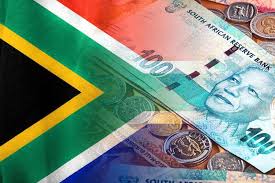The South African rand firmed slightly on Wednesday morning, gaining momentum ahead of a crucial parliamentary debate on the long-awaited national budget. By 07:30 GMT, the rand was trading at 17.81 to the US dollar—representing a 0.2% appreciation compared to its closing rate on Tuesday.
This modest rally came just hours before South Africa’s Standing Committee on Finance was scheduled to convene at 08:00 GMT to examine and debate the fiscal framework and revenue proposals tied to the national budget. The committee is expected to adopt a report recommending whether Parliament should approve the proposals or return them to the National Treasury for further amendments.
The national budget process has faced repeated delays since its original February presentation date. It has been revised twice due to internal disagreements within the ruling coalition government, particularly surrounding controversial tax-raising proposals aimed at bridging the country’s growing fiscal deficit. However, the third version of the budget, presented in May by Finance Minister Enoch Godongwana, is now anticipated to pass following a shift in support from a previously dissenting coalition partner.
Market analysts have suggested that the rand’s early gains may reflect growing investor confidence in the political consensus emerging around the budget. The approval of the fiscal framework is seen as essential to restoring fiscal discipline and attracting both domestic and foreign investment into the economy.
Adding to the positive sentiment, a new Purchasing Managers’ Index (PMI) survey released early Wednesday showed that South African business activity expanded in May at its fastest rate in four years. This upbeat business data helped balance concerns over Tuesday’s GDP figures, which revealed that Africa’s most industrialised economy had stagnated during the first quarter of 2025.
Despite the GDP flatlining, the latest PMI numbers suggest that private sector confidence and output are beginning to recover, pointing to possible economic improvement in the second half of the year. Analysts say this could provide a stronger base for fiscal consolidation and structural reform once the budget is passed.
Meanwhile, the South African bond market also showed signs of stability. The benchmark 2035 government bond strengthened slightly in early trading, with the yield declining by 2.5 basis points to 10.085%. This decline in bond yields indicates a mild uptick in investor demand for South African debt instruments amid easing political uncertainty.
Economists continue to watch how the National Treasury balances the budget’s tax proposals with the need to stimulate growth and avoid overburdening businesses and middle-income earners. The final approval of the budget is expected to set the tone for fiscal policy direction for the rest of the year.
Finance Minister Enoch Godongwana has repeatedly emphasised the importance of credible fiscal management and reducing the budget deficit. His May proposal includes limited tax increases, spending efficiency measures, and targeted investments in infrastructure and social services—all aimed at stabilising public finances without stifling economic recovery.
Investors and credit rating agencies will be closely monitoring the outcome of the parliamentary committee’s recommendations, as the budget debate will determine how South Africa navigates its current fiscal constraints amid slow growth and global economic uncertainty.
